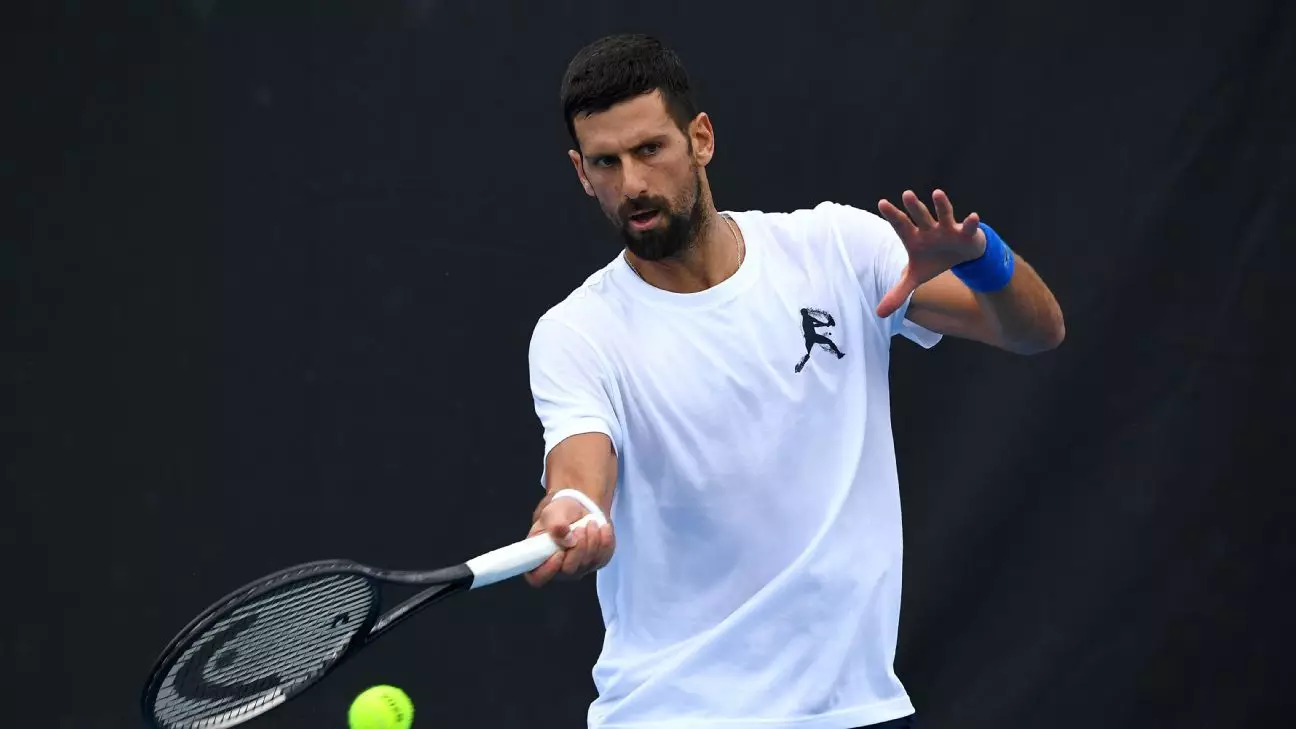As one of the most prominent figures in tennis, Novak Djokovic finds himself at the center of ongoing discussions about fairness and integrity within the sport, particularly in light of recent doping allegations involving other high-profile players. With the tennis world buzzing about the future implications of these cases, Djokovic has not refrained from voicing his concerns about the apparent inconsistencies in how doping violations are handled. As he prepares to return to competitive play at the Brisbane International, Djokovic’s analysis offers a unique glimpse into the high pressures faced by professional athletes and the governing bodies that oversee them.
Djokovic’s expressions of frustration stem from a deep-seated feeling of being left uninformed about the specifics surrounding the doping allegations against rising star Jannik Sinner. The Serbian player articulated his discontent, wishing for greater transparency in the process. “We’ve had plenty of players in the past and currently under suspension for not even testing positive,” he noted, highlighting inconsistencies that fuel speculation and anxiety among competitors. Djokovic’s call for transparency underscores a critical need for clarity in the management of doping cases, which can significantly impact the reputations and careers of those involved.
Adding complexity to the narrative, the International Tennis Integrity Agency (ITIA) has charged Sinner alongside former world No. 1 Iga Swiatek, both of whom have encountered complicated situations surrounding allegations of anti-doping violations. Sinner tested positive for an anabolic steroid but escaped a ban, a decision that has raised eyebrows and led to appeals from the World Anti-Doping Agency (WADA). Meanwhile, Swiatek’s acceptance of a one-month suspension further illustrates the varying degrees of accountability players face, igniting Djokovic’s concerns regarding a double standard that appears to govern how players are treated based on their ranking and resources.
Djokovic’s criticism reveals a potential flaw in the system itself: the possibility that the outcomes of doping cases may be influenced not just by the actions of players, but also by their status within the sport. The question arises as to whether wealthier players, armed with sophisticated legal teams, have an unfair advantage in navigating doping allegations compared to their less financially supported counterparts. Djokovic raises legitimate queries about the workings of tennis governance when he states, “Maybe some ranking reasons are behind it, or some players have more financial backing and stronger legal teams.” These reflections call for a thorough reevaluation of how the sport addresses doping violations, suggesting that a more equitable approach is urgently required.
Despite the ongoing turbulence surrounding the doping discussions, Djokovic is committed to maintaining his focus on the court. After undergoing knee surgery earlier in the year, which sidelined him temporarily, he has returned to form, aiming to capture a historic 25th Grand Slam at the upcoming Australian Open. The decision to collaborate with former rival Andy Murray as a coach for the tournament further solidifies Djokovic’s dedication to evolving his game during this critical phase in his career. Acknowledging the strangeness of working alongside a competitor, Djokovic nonetheless expressed gratitude for Murray’s willingness to take on the role.
In light of these discussions, Djokovic is not merely advocating for transparency; he is calling for a fundamental shift in how the sport of tennis handles doping allegations. His frustrations stem not just from personal concerns but also from the broader implications of these cases on the reputation of tennis itself. As the sport navigates its evolving landscape, it’s clear that significant changes may be necessary to restore integrity and ensure fairness for all athletes involved. As the season unfolds, Djokovic’s voice adds vital weight to the ongoing conversation, urging tennis authorities to act decisively and justly.

